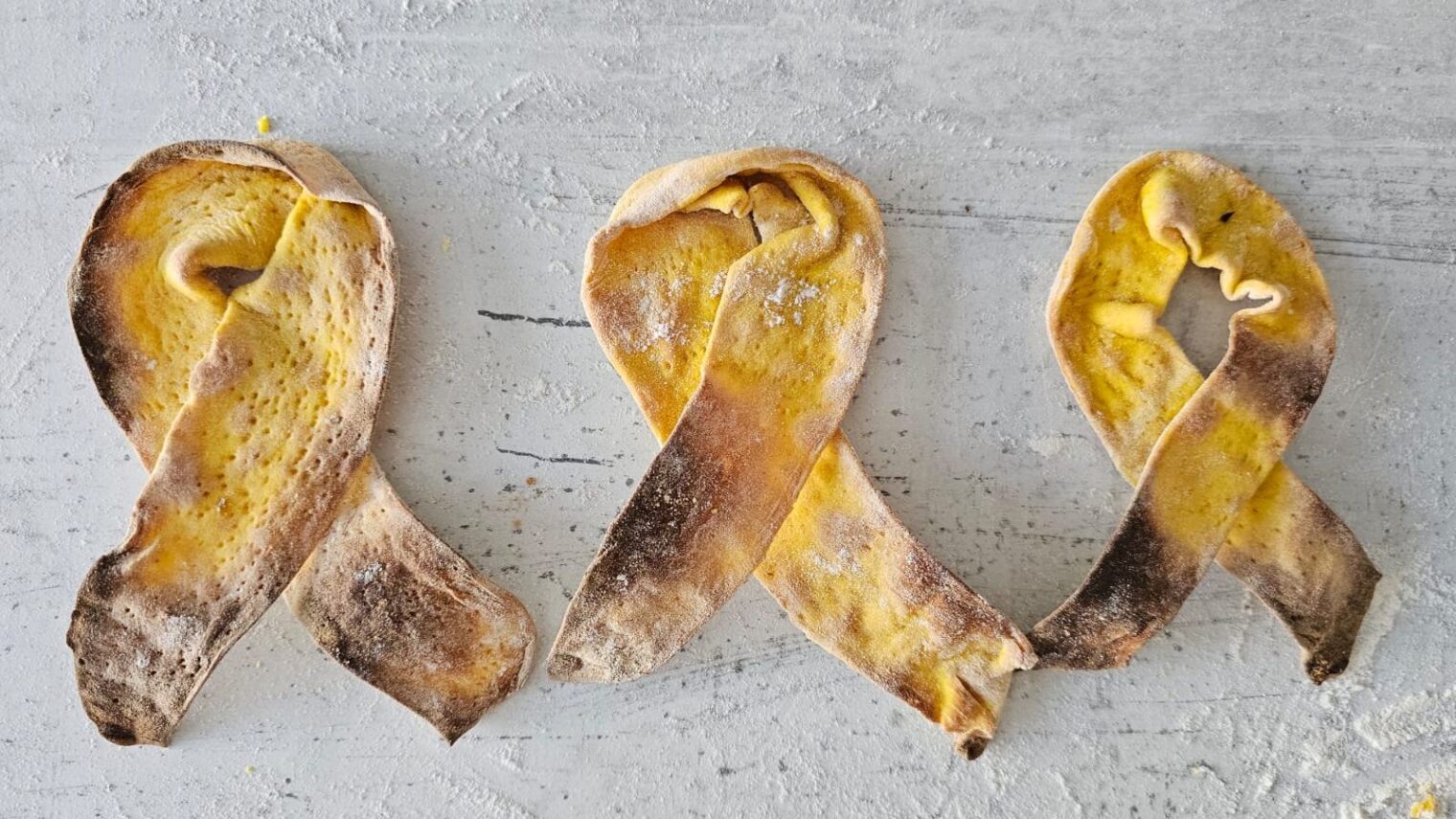Idan Chabasov is Instagram’s ultimate Challah Prince, with over 370,000 followers tuning in for his bread-braiding tutorials and sumptuous photos of Judaism’s greatest contribution to bread.
But what’s a challah prince to do on Passover, when for many bread is out of the question? The answer, it appears, is matzah.
“On Passover, I usually take a break and mostly relax,” Chabasov tells ISRAEL21c a few days before Passover. “But at the moment, I’m trying out different matzah recipes in order to have matzot during the holiday.”
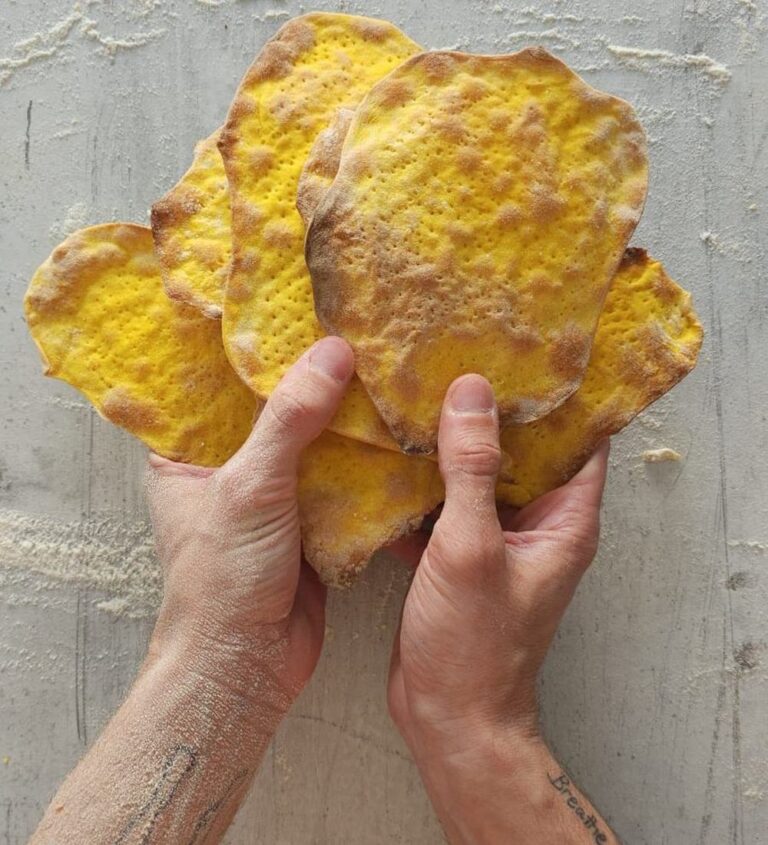
ISRAEL21c was convinced that a challah enthusiast like Chabasov would probably turn down his nose at matzot – the thin unleavened crackers that are either adored or detested. Turns out, he quite likes them.
“I love matzot, sure, they’re tasty. I think it’s the tastiest cracker there is,” he says. “I mostly like eating them with Nutella and hummus, and we of course also make matzah brei, the fritter with the egg that is so delicious and to which I add a little cheese and all kinds of things.”
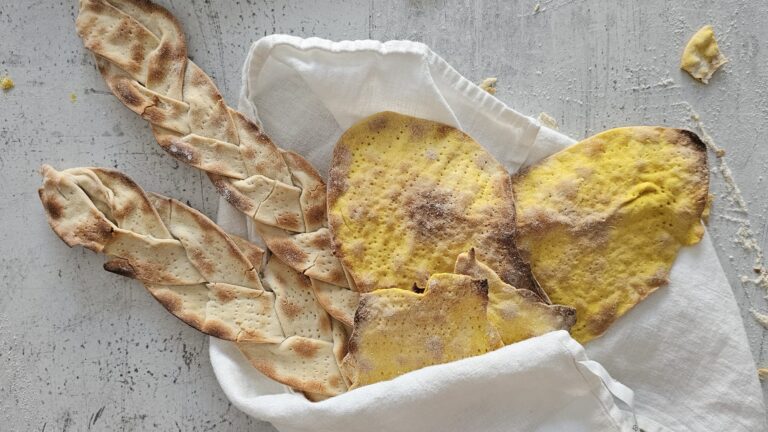
He adds that in general, “I keep a relatively healthy diet. So, whether it’s Passover or not, I eat less carbs.”
He will, however, be a bit sad not to make challah bread over the weeklong holiday.
“I’ll be missing baking challah and braiding, especially because I’m about to fly and I do need to practice and prepare myself,” he says.
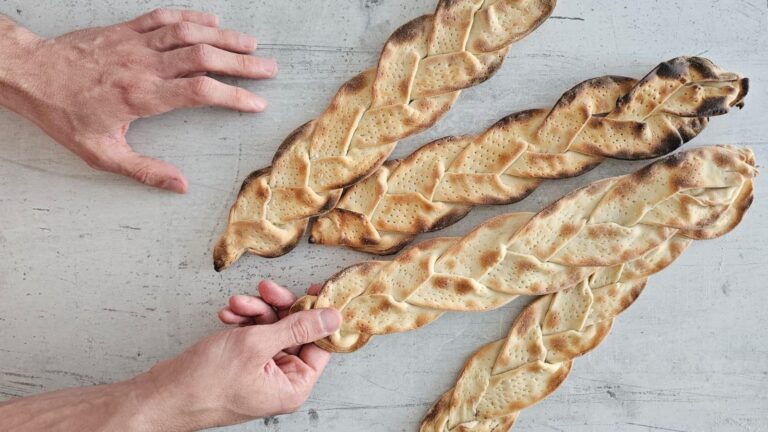
Key-shaped challah
After the holiday, he explains, he is scheduled to fly out to Los Angeles to lead a workshop on key-shaped challah, traditionally baked by some Ashkenazi Jews on the first Shabbat after Passover as a charm for prosperity.
Chabasov is therefore spending the days before the holiday developing new styles and recipes ahead of the event.
He is also sharing his matza-making content with his followers, including videos of how to make turmeric-tinted matza shaped like the yellow solidarity pins for the Israeli hostages held in Gaza.
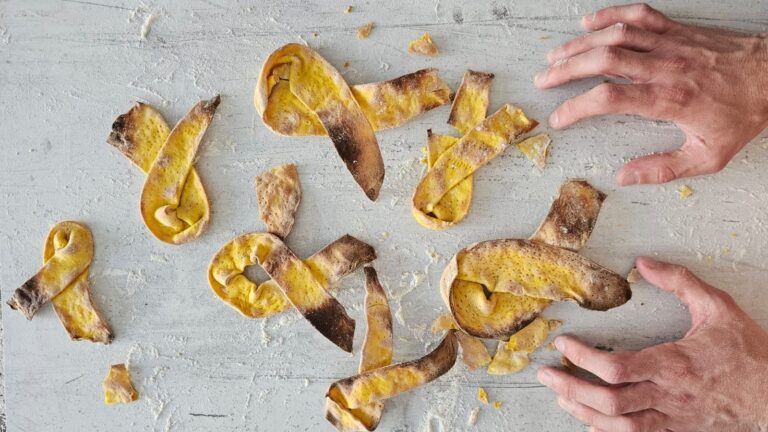
“The matzah challahs are tasty when they’re fresh, on the day they’re baked. A day later they’re not as fun to eat because they lose their crunch, unlike store-bought matzot that remain crunchy,” he says.
While his father always buys shmurah matzah from a rabbi — matzah made with grain that has been watched continuously from harvesting to baking to ensure it has not become leavened – he makes matzah for himself during the holiday “just to have something to snack on with Nutella, hummus or tahini.”




